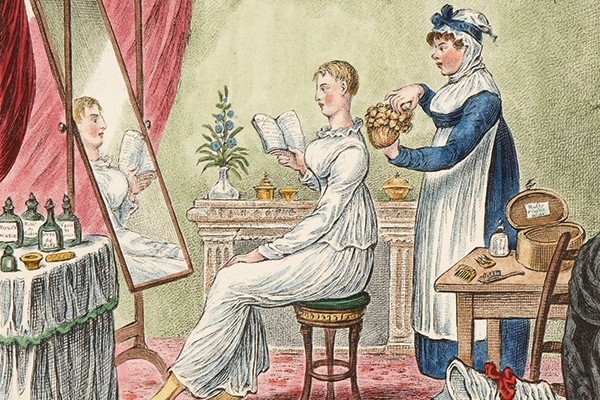‘I have nothing to doe but work and read my Eyes out,’ complained Anne Vernon in 1734, writing from her country residence in Oxfordshire to a friend in London. She and her circle of correspondents (who included Mary Delany, the artist and bluestocking) swapped rhyming jokes, ‘a Dictionary of hard words’, and notes on what they were currently reading. Their letters are suggestive of the boredom suffered by women of a certain class, constrained by social respectability and suffering the restlessness of busy but unfulfilled minds.
But that’s not their interest for Abigail Williams in this fascinating study of habits of reading in the Georgian period. Her quest is rather to discover how they read, in which room of the house, who with, out loud or alone and silently, as entertainment or education. A professor of English literature at Oxford University, she has turned her attention away from the content of books to focus on the ways in which that content is received and appreciated.
How books are read is as important as what’s in them, argues Williams persuasively, and her book charts her exhaustive forays into a multiplicity of sources, reading between the lines of diaries, letters and library records to glean an understanding of ‘what books have meant to readers in the past’.








Comments
Join the debate for just $5 for 3 months
Be part of the conversation with other Spectator readers by getting your first three months for $5.
UNLOCK ACCESS Just $5 for 3 monthsAlready a subscriber? Log in